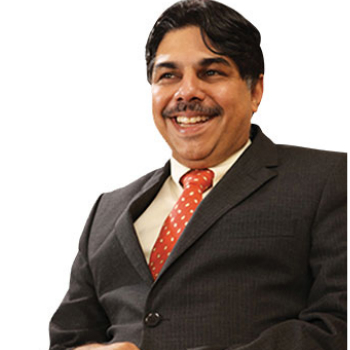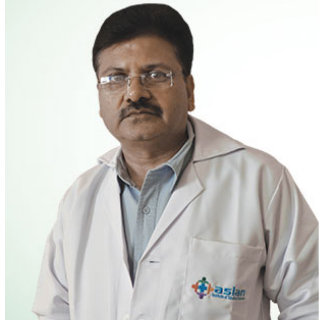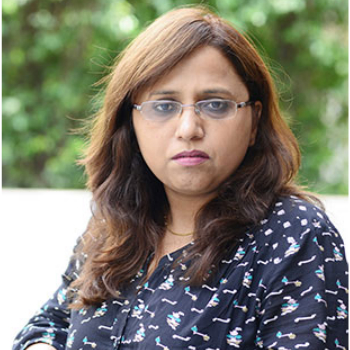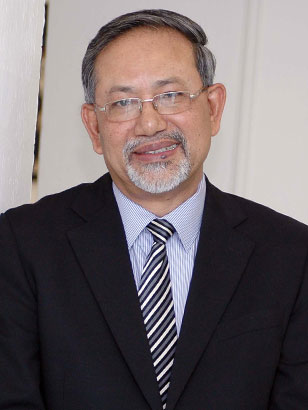Dr Avnish Seth, Director, Fortis Organ Retri and Transplant (FORT), in conversation with Shahid Akther, ENN, holds forth on FORT programme and shares his insights on organ donation
Where do we stand in organ donation map of the world today?

Awareness on organ donation is increasing in our country, albeit slowly. Over the last few years, the organ donation rate in India has increased from 0.05 to 0.26 per million population. This is still a far cry from more than 30 per million in some Western countries.
Why are people so unwilling to donate organs?
That is a myth. The fact is that there is not much awareness on organ donation at all levels, be it doctors, paramedics or the general population. The government needs to step in with resources to increase awareness from school days onwards. Those of us who have tried sincerely for organ donation by increasing awareness amongst hospital staff, providing training for transplant coordinators, liaising with police, making easy access to documentation etc., have found an acceptance rate amongst families of over 40 percent, which is as good as the Western world.

How do we define organ donation?
It is important to understand that organ donation is possible only after brain death. Brain death occurs due to an injury which can be caused either by a stroke or a head injury. In fact, when the brain dies, the heart still continues to beat for a few hours or days so that the vital blood supply to the organs is maintained. The basic difference between brain death and death is that the heart continues to beat for sometime even after brain death. Tissue donation is possible up to 48 hours after death.
Do all brain-dead patients need certification?
The diagnosis of brain death is based on clinical tests carried out at the bedside by four doctors and repeated after six hours. There is no requirement for any expensive tests like MRI or Angiography. Earlier, certification of brain death and organ retri were allowed only from large hos- pitals with transplant centers. The Transplantation of Human Organs and Tissues Rules 2014, now, allows for certification of brain death and organ retri from any hospital with intensive care unit. Also, the presence of neurophysician or neurosur- geon is not mandatory if the hospital does not have the facility. Of course, all hospitals have to apply for the ap- proval of brain death committee and sanction for organ retri centre from the appropriate state authority. The new rules now make it mandato ry to certify brain death and counsel the family for organ donation.
Who can be an organ donor and which organ is in most demand?
One can pledge to donate ones or- gans with various organizations dur- ing lifetime. We, at Fortis Organ Retri and Transplant (FORT) offer the same (fort@fortishealthcare.com ; helpline +91-8447743868). However, the organ donor card has no legal standing. It is an only an expres- sion of ones desire which the family members should be made aware of. Organ donation is possible in patients with stroke or head injury who de- velop brain death while on ventilator. There is a huge gap between require- ment and availability of organs. It is estimated that we need about 1,75,000 kidneys, 100,000 livers, 50,000 hearts, and 20,000 lungs in a year. Besides these, the pancreas and small intes- tine can also be transplanted. In 2013, a total of 815 organs were transplant- ed following deceased organ donation across the country.
“We do not have to be at par with Spain which has an organ donation rate of 35.1 per million population. We need to establish short- term goals.”
Our awareness in organ donation is so low. What efforts have been made by FORT or NGOs in this direction?
There are several NGOs working in this field, and we have reached where we are today. This has happened largely due to their efforts, most nota- bly MOHAN Foundation. Fortis Organ Retri and Transplant (FORT) has been established with an aim to pro- mote and streamline the process of organ donation following brain death. We provide organ pledging facility and arrange awareness drives with schools, corpo- rate and media.
We have interacted with Gurgaon po- lice to facilitate the process of organ donation in medico-legal patients.
Each organ deserves a different treatment by way of retri, processing, storage and forwarding. Where do we stand here in this domain?
Organ retri is the easy part. We have transplant surgeons who have worked in the best centres in the world. Organ retri is carried out in the operation theatre as per well- established protocols. It is important to remember that organs cannot be stored. We pack organs in sterile ice and special organ preserving fluids, but there is no shelf life. Heart and lungs have to be transplanted in four hours, liver in six to 12 hours and kidneys in 12 to 18 hours. Thus, the challenge lies in having a robust and transparent organ allocation system along with regulated traffic corridors for rapid movement of ambulances.
What has been the role of FORT in organ donation programme?
Fortis is the largest private healthcare provider in Asia. We are currently car- rying out organ transplantation in 15 of our hospitals, and have established deceased organ donation facilities in most of them. We are also in the pro- cess of getting non-transplant hospi- tals recognized as retri centres. FORT provides 24-hour referral ser- vice for organ and tissue donation and assistance with documentation and procedures related to organ and tis- sue donation. We recently held a five- day training workshop for transplant coordinators from across the country.
How good is our organ harvesting protocol as far as clearances from law enforcement authorities are concerned?
The process of organ retri and transplantation has to be completed swiftly before the heart comes to a standstill. At the same time, police clearance is mandatory for organ retri in medico-legal patients with head injury. Very often a patient has been transferred from a smaller hospital close to the site of an accident to a tertiary care facil- ity where brain death occurs. Tamil Nadu police has passed instructions that police clearance will be accorded on priority and by the police station closest to the hospital and it is not essential to approach the police sta- tion under whose jurisdiction the accident took place. Recently, 70 per- sonnel from Gurgaon police, pledged to donate their organs with FORT. Mr Alok Mittal, the police commissioner, leading from the front in pledging his organs, has also promised full coop- eration. Similar positive attitude by police forces from all states will go a long way in promoting organ donation in the country. Recent amendments in Transplantation of Human Organs & Tissues Rules 2014 have made post- mortem requests easier by allowing post mortem beyond office timings for organ donors.
“The new rules now make it mandatory to certify brain death and counsel the family for organ donation”
What should be the governments role in promoting organ donation?
Increasing awareness takes years and decades of constant endeavour. The government needs to step in by intro- ducing chapters in school books, media campaigns, creating pledging facility at the time of issuing driving licence, ration cards, ADHAAR cards etc.
Has there been an amendment to the Human Organs Transplant Act of 1994?
The most recent amendment is the Transplantation of Human Organs & Tissues Rules 2014. Families of patients with brain death were not being approached for organ do- nation as there was no mandate. But now, brain-dead patients, irrespective of their previous pledge, near rela- tives have to be approached for or- gan donation by the treating doctor. Organ retri was not permitted in hospitals which were not approved for organ transplantation. However, now, organ retri is allowed from any hospital having ICU facility. The process of organ donation after brain death in medico-legal cases has been simplified. Post-mortem authorities may be requested to do post mortem beyond office timings. Also, appoint- ment of a transplant coordinator is made mandatory
How do you see the future of organ donation in India? Can India be at par with Spain some day?
Organ donation in India is poised for takeoff. We, as a nation, believe in giving to others and in altruism. Awareness on socially relevant is- sues is rapidly increasing. We have campaigns on educating the girl child, save the tiger, global warming and so on. It is the younger generation which is going to make a difference. We do not have to be at par with Spain which has an organ donation rate of 35.1 per million population. We need to estab- lish short-term goals. I would suggest goals like organ donation rate of 1 per million population by 2020. With our population, that translates into huge numbers. We should aim to follow the example of Croatia or Brazil. Croatia was able to increase their organ do- nation rate from 2.7 to 35 per million population over 10 years, and today they are second in the world. This was achieved by recognizing organ dona- tion as a priority area, earmarking requisite funds, sustained awareness campaign, training of transplant coor- dinators and appointing a key dona- tion person in each hospital.
Be a part of Elets Collaborative Initiatives. Join Us for Upcoming Events and explore business opportunities. Like us on Facebook , connect with us on LinkedIn and follow us on Twitter , Instagram.










